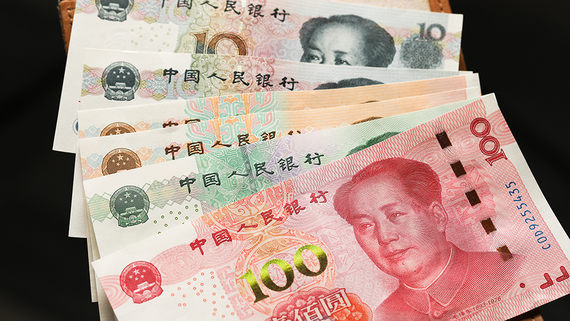The Ministry of Finance will almost triple the sale of foreign currency under the budget rule
[ad_1]

The Ministry of Finance from February 7 will increase sales of foreign currency as part of the budget rule. The volume of currency sales in terms of rubles will amount to 160.2 billion rubles, according to a press release from the Ministry of Finance. From January 13 to February 6, the Ministry of Finance planned to sell yuan in the amount of 54.5 billion rubles. (3.7 billion rubles per day).
“Operations will be carried out from February 7, 2023 to March 6, 2023, the daily volume of foreign currency sales will amount to the equivalent of 8.9 billion rubles,” the Ministry of Finance said in a press release.
The exchange rate practically did not respond to reports of an increase in the volume of transactions. At 13.52 Moscow time, the yuan was worth 10.42 rubles. (0.03% less than at the time of the opening of trading), the dollar – 70.38 rubles. (down 0.08%).
According to the forecast of the ministry, in February the budget will receive less than 108 billion rubles. oil and gas revenues. According to the results of January, the deviation of actually received oil and gas revenues from the expected monthly volume amounted to 52.1 billion rubles. due to a decrease in revenues from the export duty on gas, the Ministry of Finance said in a statement. According to the ministry, in January oil and gas budget revenues amounted to 425.5 billion rubles. with a base monthly volume of 585.1 billion rubles. For comparison, in December 2022, oil and gas revenues were 2.2 times higher – 931.5 billion rubles. (most of them fell on the last tranche from the increased MET for Gazprom). In January last year, oil and gas revenues amounted to 794.5 billion rubles.
The authorities resumed foreign exchange interventions under the fiscal rule from January 13. In a press release from the Ministry of Finance and the Central Bank, it was said that transactions would be carried out in Chinese yuan in the currency section of the Moscow Exchange with a settlement date of “tomorrow”. Then the ruble reacted to the message about the resumption of the sale of the currency with a slight strengthening against the Chinese currency.
Foreign exchange interventions under the budget rule have not been carried out since January 2021. According to the model of the rule in force at that time, the Central Bank began interventions on behalf of the Ministry of Finance after the oil price fell below the cut-off price (in 2020 it was $42.4). The regulatory basket for interventions consisted of 39.7% euro, 30.4% yuan, 5% pound sterling, 4.7% yen and 20.2% gold. In this proportion, the National Wealth Fund (NWF) was filled. Previously, it included dollars. Funds in euros, pounds and yen in accounts with the Central Bank are blocked due to sanctions at the end of February. The budget rule has since been suspended.
The last time the Central Bank bought foreign currency was in January 2021, before the resumption of the budget rule, sales were last held in the spring of 2020 during a period of strong volatility in the foreign exchange and commodity markets due to the coronavirus.
The volume of the NWF as of January 1, 2023 was 10.4 trillion rubles, or 7.8% of GDP projected for 2022. The liquid part at this date was 6.1 trillion rubles. or 4.6% of GDP.
The increase in foreign currency sales is intended, firstly, to compensate for the difference between actual and expected revenues for January 2023, as well as the expected deficit in oil and gas revenues for February, explains Valery Vaysberg, Director of the Analytical Department of Region Investment Company. The proceeds from the sale of foreign currency will allow bringing the level of oil and gas revenues actually received by the Ministry of Finance to the base value, he adds.
According to Weisberg, the most significant contribution to the decline in oil and gas revenues in January was made by the reduction in exports, and, accordingly, the volume of gas production by Gazprom, which is the main payer of the MET and the export duty on gas.
Revenues turned out to be lower than expected, firstly, because estimates of expected revenues were made without taking into account the explosion at Nord Stream, that is, expectations for revenues from the export duty on natural gas are overstated, Alexander Isakov, chief economist for Russia at Bloomberg Economics, said. Secondly, the export price of oil turned out to be lower than the Finance Ministry’s expectations. The average price of Urals oil in January 2023 was $49.48 per barrel, which is 1.7 times lower than in January 2022 ($85.64 per barrel), the Ministry of Finance reported on February 1.
In the coming months, sales will decline and will amount to $100-150 billion per month, Isakov believes. “According to our estimates, this year sales may amount to about $20 billion, that is, the current liquid assets of the NWF may be enough for four years of sales while maintaining the price of Urals at about $50 per barrel,” the analyst notes. According to him, at the beginning of the year, about $87 billion of liquid assets remained in the NWF.
[ad_2]
Source link






